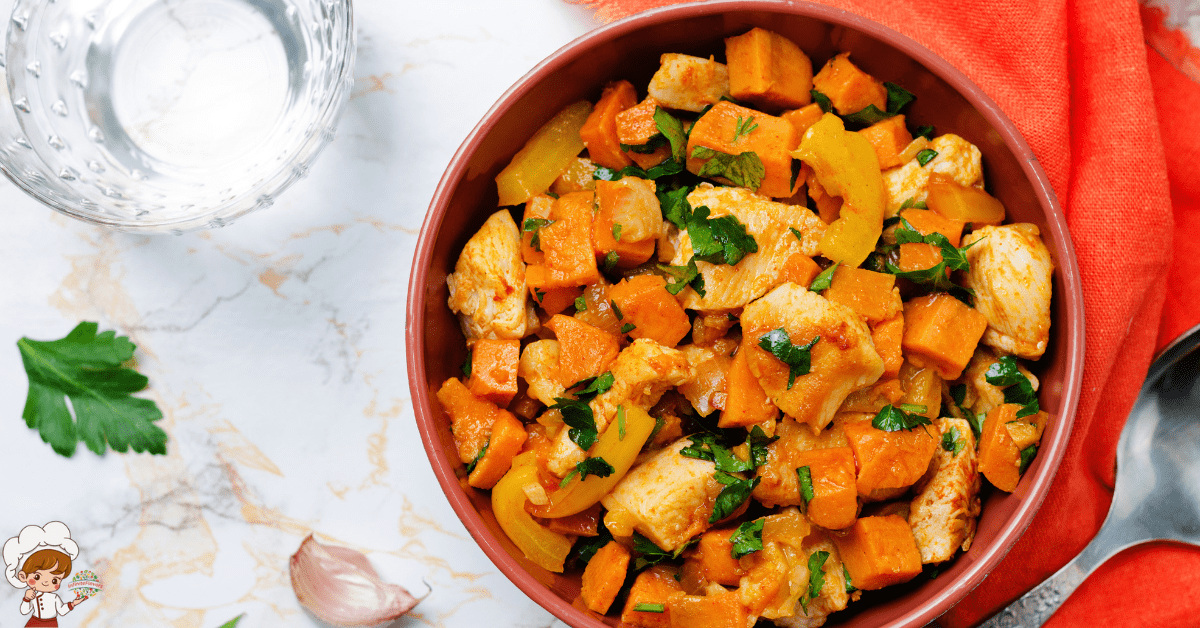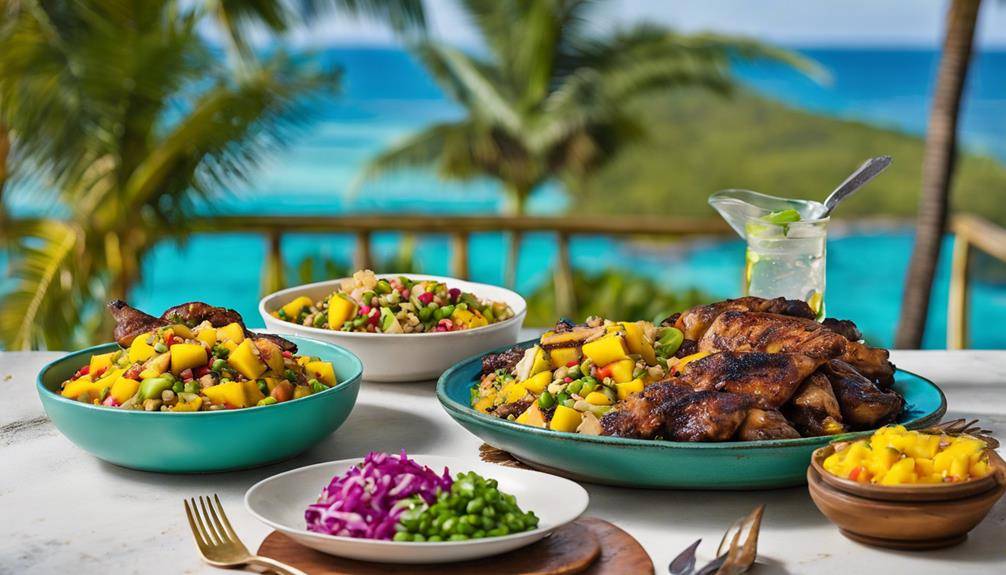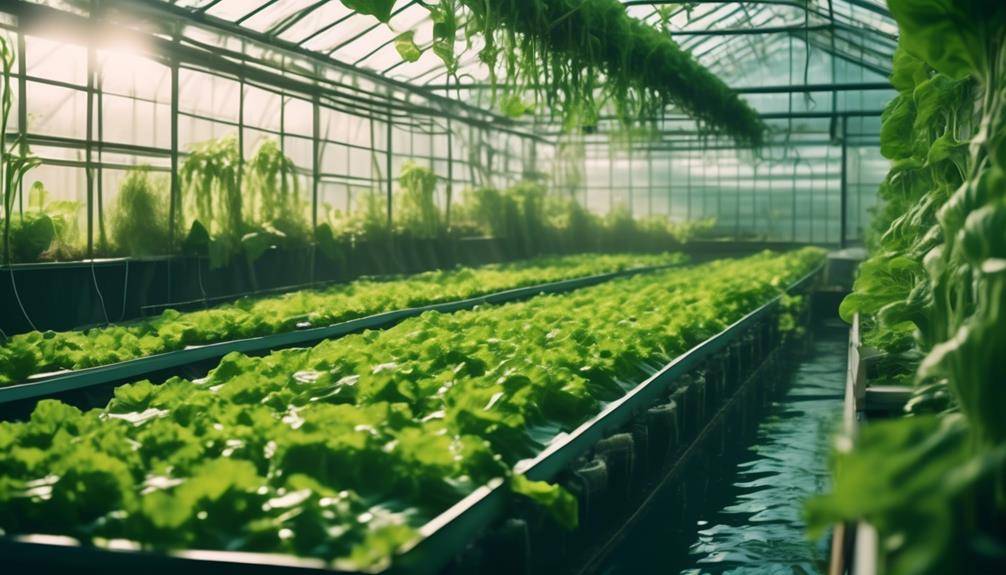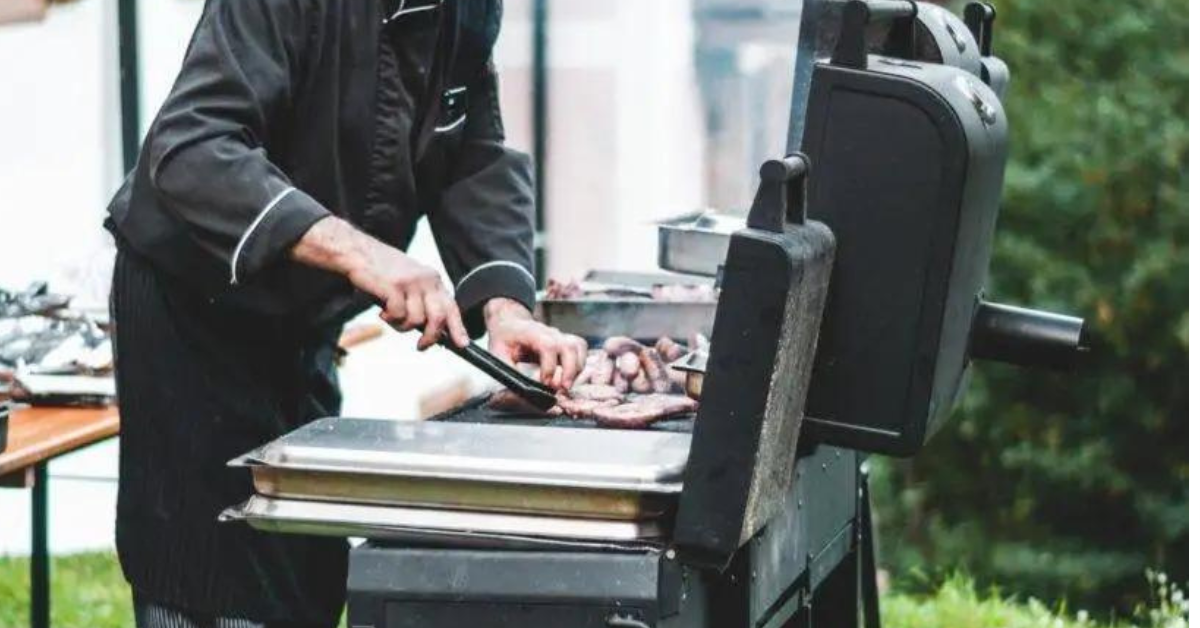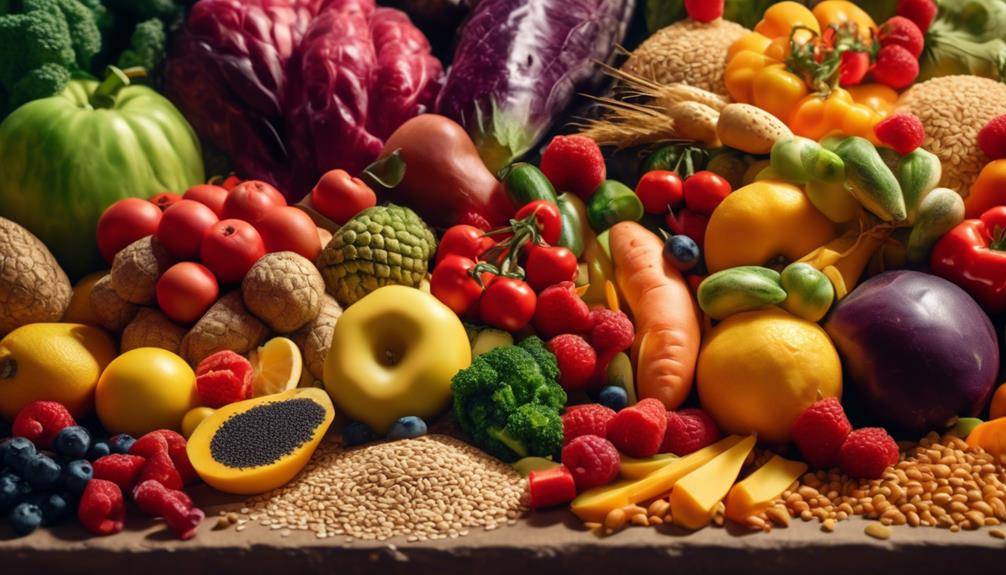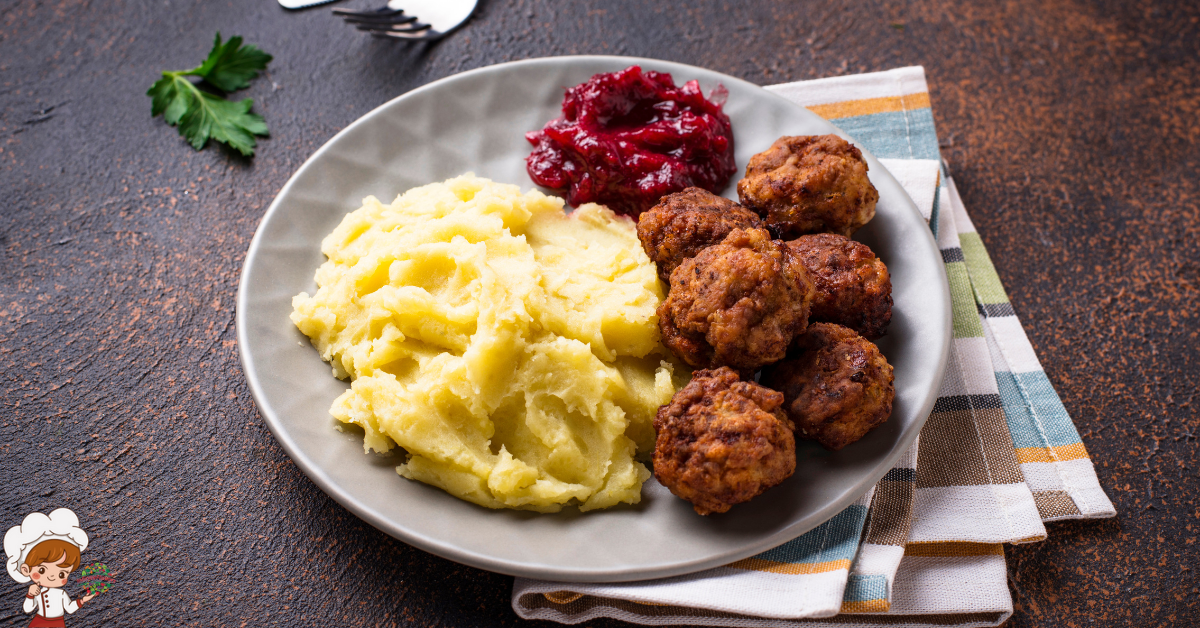Important Reasons To Start With Kitchen Basics
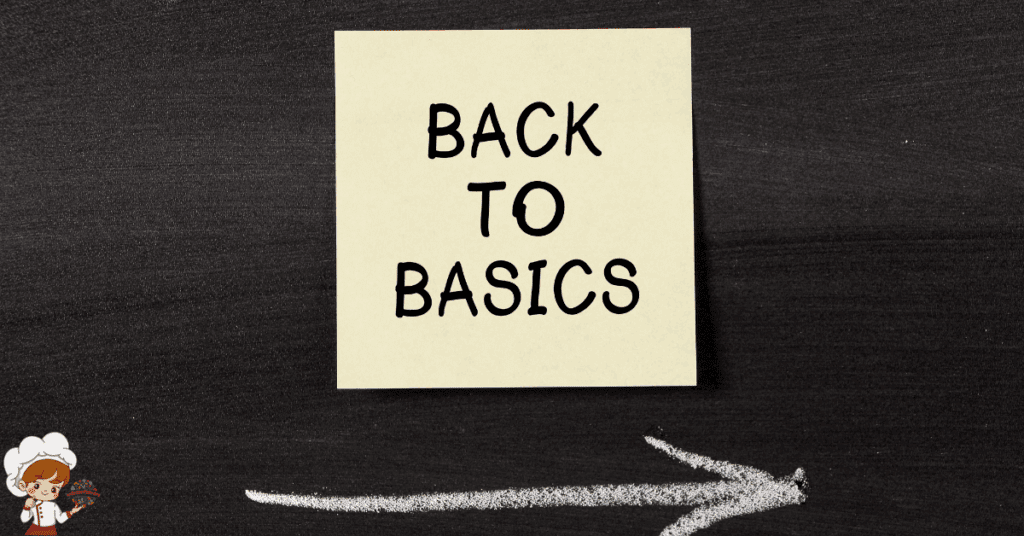
Reasons To Start With Kitchen Basics; Do you know that starting with kitchen basics is the key to becoming a skilled cook? By mastering the fundamentals, you can lay a strong culinary foundation and build your confidence in the kitchen. Understanding essential cooking techniques, knife skills, and basic kitchen tools will set you on the right path to creating delicious meals.
Plus, by developing your taste and flavor profiles, you’ll be able to adapt to different recipes and cuisines with ease. Starting with kitchen basics also allows you to save time and money, as you’ll be able to create your own homemade versions of your favorite dishes. So, don’t underestimate the power of kitchen basics – they are the gateway to expanding your culinary repertoire!
Building a Strong Culinary Foundation
- Begin by mastering the fundamental cooking techniques that will lay the groundwork for your culinary journey. Building a strong culinary foundation is essential for any aspiring chef. By understanding and practicing these basic cooking techniques, you will be able to create delicious and impressive dishes with ease.
One important aspect of building a strong culinary foundation is learning how to build flavor profiles. This involves understanding the different tastes and how to combine them to create a harmonious and balanced dish. By experimenting with herbs, spices, and other seasonings, you can enhance the flavors of your dishes and take them to the next level. Building flavor profiles is like painting with a palette of flavors, allowing you to create unique and memorable dishes.
Another crucial aspect of building a strong culinary foundation is mastering time-saving techniques. In the kitchen, time is of the essence, and being able to prepare meals efficiently is essential. Learning how to chop ingredients quickly and efficiently, how to cook multiple things simultaneously, and how to plan and prep ahead can save you valuable time and make the cooking process much smoother.
Learning Essential Cooking Techniques
Now that you have a solid foundation in the kitchen, it’s time to take your skills to the next level by learning essential cooking techniques. One of the most important skills to master is knife skills, as it will greatly improve your efficiency and precision in the kitchen. Additionally, understanding how to control heat is crucial for achieving the perfect level of doneness in your dishes. Lastly, proper seasoning techniques will elevate the flavors of your food and make every bite a delight. So, let’s get started and explore these essential cooking techniques in more detail.
Knife Skills Importance
To master essential cooking techniques, you need to develop strong knife skills. Knife skills are of utmost importance in the kitchen as they not only make the preparation process more efficient but also ensure safety and precision. Here are five reasons why knife skills are essential for any aspiring cook:
- Efficiency: Proper knife skills enable you to chop, slice, and dice ingredients quickly and accurately, saving you time in the kitchen.
- Safety: Learning how to hold and handle a knife properly reduces the risk of accidents and cuts.
- Consistency: Good knife skills result in uniform cuts, ensuring even cooking and a professional presentation.
- Versatility: With the right knife skills, you can tackle any recipe or ingredient, from delicate herbs to tough root vegetables.
- Confidence: Mastering knife skills boosts your confidence in the kitchen, allowing you to take on more challenging recipes and experiment with new techniques.
Mastering Heat Control
To become a skilled and efficient cook, it is crucial for you to master heat control and learn essential cooking techniques. One of the most important aspects of cooking is understanding how to control heat. By mastering heat control techniques, you can achieve perfect results every time you step into the kitchen.
Perfecting temperature control is key to cooking delicious meals. Whether you’re searing a steak, sautéing vegetables, or baking a cake, knowing how to adjust the heat can make all the difference. Different cooking methods require different levels of heat, and being able to control the temperature on your stove or oven will help you achieve the desired outcome.
There are various heat control techniques you can learn, such as adjusting the flame on a gas stove, using different heat settings on an electric stove, or preheating your oven to the right temperature. Additionally, understanding how to use indirect heat, simmer, boil, and reduce heat can elevate your cooking skills to new heights.
Mastering heat control is an essential skill that every beginner cook should focus on. It will not only improve the quality of your dishes but also enhance your overall cooking experience. So, take the time to learn and practice these techniques, and soon you’ll be cooking like a pro.
Proper Seasoning Techniques
Start by learning the essential seasoning techniques that every beginner cook should know. Proper seasoning techniques are crucial for creating delicious and flavorful dishes. Here are five key techniques to master:
- Salt: Salt enhances the natural flavors of ingredients and brings out their best qualities. Use it sparingly and taste as you go.
- Pepper: Freshly ground pepper adds a subtle heat and complexity to your dishes. Invest in a good pepper grinder for the best flavor.
- Herbs: Fresh or dried herbs can elevate the taste of your food. Experiment with different herbs like basil, thyme, and rosemary to find your favorites.
- Spices: Adding spices like cumin, paprika, or cinnamon can transform a simple dish into something extraordinary. Start with small amounts and adjust to your taste.
- Acid: A touch of acidity, such as lemon juice or vinegar, can brighten and balance flavors. Use it to add a tangy kick to your dishes.
Mastering Knife Skills
When you begin your culinary journey, it is important to first master knife skills. Proper knife skills are essential for any cook, whether you’re a beginner or a seasoned chef. By mastering chopping techniques and following knife safety tips, you can enhance your efficiency in the kitchen and reduce the risk of accidents.
To master chopping techniques, start by holding the knife properly. Grip the handle firmly with your dominant hand and place your thumb on the side of the blade for stability. Practice the rocking motion by placing the tip of the knife on the cutting board and moving it up and down, using your other hand to guide the food. This technique allows for precise and controlled cuts, whether you’re dicing onions or slicing tomatoes.
Knife safety is paramount when working with sharp blades. Always keep your fingers curled under and away from the blade to avoid cuts. Use a stable cutting board to prevent it from sliding while you work. It’s also important to keep your knives sharp. A dull knife requires more force to cut, increasing the risk of slipping and causing injury. Regularly sharpen your knives to maintain their effectiveness.
Understanding Basic Kitchen Tools
Now that you’ve mastered your knife skills, it’s time to understand the importance of basic kitchen tools. These essential utensils are the backbone of every successful cooking endeavor. From measuring cups and spoons to spatulas and tongs, having a solid understanding of these tools will elevate your culinary expertise and make your time in the kitchen more efficient and enjoyable.
Essential Kitchen Utensils
Equip your kitchen with the essential utensils for cooking by understanding basic kitchen tools. Having the right tools can make a world of difference in your cooking experience, helping you build confidence in the kitchen and saving you time. Here are five must-have kitchen utensils:
- Chef’s knife: A versatile knife that can be used for chopping, slicing, dicing, and more.
- Cutting board: A sturdy surface to protect your countertops while you prep ingredients.
- Mixing bowls: Essential for mixing ingredients, marinating, and storing leftovers.
- Measuring cups and spoons: Accurate measurements are crucial for baking and cooking.
- Spatula: Perfect for flipping pancakes, stirring sauces, and scraping the sides of bowls.
Knife Skills Importance
To truly understand basic kitchen tools, it is important for beginners to grasp the importance of knife skills. Knife skills are crucial in the kitchen as they not only improve your precision but also reduce accidents. By mastering proper knife techniques, you can ensure that your food is sliced evenly and with finesse. This is particularly important when it comes to ingredients that require precise cutting, such as onions or herbs.
Additionally, having good knife skills can help prevent accidents and injuries. By holding the knife correctly and using the appropriate cutting motions, you can minimize the risk of slips and cuts. So, take the time to practice and hone your knife skills, as they will be invaluable in your culinary journey.
Developing Taste and Flavor Profiles
Start by exploring different flavor profiles with the basic ingredients in your kitchen. Developing taste and flavor profiles is an essential skill for any beginner cook. It allows you to enhance the flavors of your dishes and create unique culinary experiences. Here are some tips to help you get started:
- Experiment with different spices: Spices are the key to adding depth and complexity to your dishes. Take a look at your spice rack and try using different combinations in your recipes. For example, cumin and paprika can add a smoky flavor to roasted vegetables, while cinnamon and nutmeg can transform a simple apple pie into a warm and comforting dessert.
- Try out different cooking methods: Each cooking method brings out different flavors in your ingredients. Whether you’re sautéing, grilling, baking, or steaming, each technique has its own unique effect on taste and texture. For instance, grilling imparts a smoky flavor, while baking can create a caramelized crust.
- Explore international cuisines: Different cultures have their own distinct flavor profiles. By exploring dishes from around the world, you can broaden your culinary horizons and discover new flavor combinations. From Indian curry to Mexican salsa, each cuisine offers a unique blend of spices and ingredients that can inspire your own creations.
- Balance your flavors: Developing taste also means understanding how to balance sweet, salty, sour, and umami flavors in your dishes. Experiment with adding a touch of acidity, like lemon juice or vinegar, to brighten up a dish. Don’t be afraid to play with contrasting flavors to create a harmonious balance.
- Document your experiments: Keep a journal of your flavor experiments. Write down the spices and cooking methods you used, as well as your thoughts on the final result. This will help you remember what worked and what didn’t, and allow you to refine your flavor profiles over time.
Developing Confidence in the Kitchen
You can build confidence in the kitchen by starting with kitchen basics. Building kitchen confidence is all about gaining kitchen skills. When you start with the basics, you are setting yourself up for success. By mastering simple techniques and familiarizing yourself with essential tools and ingredients, you will feel more comfortable and capable in the kitchen.
One of the key aspects of building kitchen confidence is developing a solid foundation of skills. By starting with the basics, such as learning how to chop vegetables or cook rice, you are building a strong base upon which you can expand your culinary repertoire. As you gain more experience and knowledge, you will feel more confident in trying new recipes and experimenting with different flavors.
Another way to gain confidence in the kitchen is by practicing regularly. Like any skill, cooking requires practice to improve. By consistently cooking meals at home, you will become more familiar with various techniques and ingredients. You will also learn how to troubleshoot common cooking problems, such as overcooking or underseasoning. With each successful meal you prepare, your confidence will grow.
Additionally, seeking out resources and educational materials can greatly aid in building kitchen confidence. There are countless cooking blogs, cookbooks, and online tutorials available that can provide guidance and inspiration. By expanding your knowledge and learning from more experienced cooks, you will gain valuable insights and techniques that will further enhance your confidence in the kitchen.
Saving Time and Money
By mastering kitchen basics, beginners can save both time and money. When you have a solid understanding of basic cooking techniques and recipes, you can easily whip up budget-friendly meal ideas in no time. Here are some time-saving cooking hacks that can help you save both time and money in the kitchen:
- Meal planning: Planning your meals in advance allows you to make a shopping list and buy only what you need. This helps you avoid impulse purchases and reduces the risk of wasting food.
- Batch cooking: Prepare larger quantities of food and freeze individual portions for later use. This not only saves you time on busy days when you don’t feel like cooking, but it also prevents you from ordering takeout or eating out.
- One-pot meals: Opt for recipes that require minimal dishes and utensils. This not only saves you time on cleaning up but also reduces the amount of water and energy used.
- Utilize leftovers: Transform leftovers into new dishes. For example, leftover roasted chicken can be used to make a delicious chicken salad or added to a pasta dish. This not only saves you money by utilizing ingredients you already have, but it also saves you time by eliminating the need to cook from scratch.
- Use kitchen gadgets: Invest in time-saving kitchen gadgets like a slow cooker or an Instant Pot. These devices allow you to set it and forget it, freeing up your time to focus on other tasks.
Adapting to Different Recipes and Cuisines
To adapt to different recipes and cuisines, beginners can explore a variety of flavors and techniques in their kitchen journey. One of the most exciting aspects of cooking is the opportunity to experiment with different ingredients and flavors. As you progress in your culinary skills, you’ll come across unique ingredients that are specific to certain recipes or cuisines. This is where adapting becomes crucial.
When faced with unfamiliar ingredients, it’s important to approach them with curiosity and an open mind. Don’t be afraid to try something new! Experimenting with flavors is a great way to develop your palate and expand your cooking repertoire. Start by incorporating small amounts of the unique ingredient into a familiar recipe to get a sense of its taste and how it interacts with other flavors. As you gain confidence, you can gradually increase the amount and explore different combinations.
Adapting to different cuisines involves more than just adjusting the ingredients; it also requires understanding the cooking techniques that are characteristic of that cuisine. For example, if you want to try your hand at cooking Chinese cuisine, you’ll need to familiarize yourself with stir-frying, steaming, and using ingredients like soy sauce and ginger. By learning these techniques, you’ll be able to recreate the authentic flavors of the cuisine you’re exploring.
To further enhance your adaptability, it’s beneficial to expose yourself to a wide range of recipes and cuisines. Don’t limit yourself to just one style of cooking. Try out recipes from different cultures and experiment with their unique flavors. This will not only make your cooking journey more exciting but also help you develop a broader understanding of different culinary traditions.
Expanding Your Culinary Repertoire
Beginners can diversify their cooking skills and knowledge by exploring a wider range of recipes and cuisines. Expanding your culinary repertoire not only allows you to discover new and exciting flavors but also boosts your creativity in the kitchen. Here are some ways you can expand your flavor profiles and unleash your inner culinary artist:
- Try new ingredients: Experiment with ingredients you haven’t used before. Whether it’s exotic spices like saffron or uncommon vegetables like kohlrabi, incorporating new elements into your dishes will add depth and intrigue to your cooking.
- Explore different cuisines: Venture beyond your comfort zone and delve into the culinary traditions of different cultures. From Thai curries to Mexican tacos, each cuisine has its unique flavors and techniques that will broaden your culinary horizons.
- Learn new cooking techniques: Mastering various cooking techniques opens up a world of possibilities. Whether it’s perfecting the art of braising, grilling, or baking, each technique adds a distinct flavor and texture to your dishes.
- Cook with herbs and spices: Herbs and spices are the key to elevating the taste of your dishes. Experiment with different combinations and proportions to create your own signature spice blends and bring your meals to life.
- Get inspired by cookbooks and online resources: There is a wealth of culinary knowledge available at your fingertips. Browse through cookbooks, watch cooking shows, or explore online recipe communities to discover new recipes and techniques.
Frequently Asked Questions: Reasons To Start With Kitchen Basics
How Can Beginners Overcome the Fear of Cooking for the First Time?
Don’t let fear hold you back! Start by taking small steps in the kitchen. Try easy recipes, follow them closely, and build your confidence. Soon, you’ll overcome cooking fears and become a pro!
What Are Some Common Mistakes Beginners Make in the Kitchen and How Can They Be Avoided?
When you’re new to cooking, it’s easy to make mistakes like burning food or cutting yourself. But fear not! By starting with kitchen basics, you’ll learn essential skills and build confidence to avoid these common pitfalls.
Are There Any Specific Kitchen Tools or Gadgets That Are Essential for Beginners?
To get started in the kitchen, you’ll need some kitchen essentials. Must-have gadgets like a good knife, cutting board, and measuring cups are crucial for beginners. They’ll make cooking easier and more enjoyable.
How Can Beginners Experiment With Different Flavors and Ingredients Without Feeling Overwhelmed?
Experimenting with flavors and ingredients can be overwhelming for beginners. Start by trying small modifications to recipes and gradually increase complexity. Taste test along the way to build confidence and overcome fear of trying new things in the kitchen.
What Are Some Tips for Saving Time and Money in the Kitchen While Still Creating Delicious Meals?
To save time and money in the kitchen while making tasty meals, start with kitchen basics. They provide a solid foundation for cooking and help you develop essential skills for creating budget-friendly, delicious dishes.
Conclusion
So there you have it, aspiring chefs and home cooks! Starting with kitchen basics is the key to building a strong culinary foundation. By learning essential cooking techniques, mastering knife skills, and understanding basic kitchen tools, you’ll develop the confidence and expertise needed to create delicious meals. Not only will this save you time and money, but it will also allow you to adapt to different recipes and cuisines, expanding your culinary repertoire. So don’t hesitate, start with the basics and watch your culinary skills soar!



